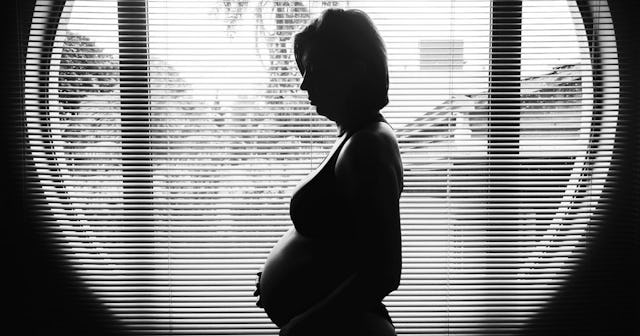Climate Change Is Causing Early Labor In Pregnant Women

Birth rates are 5 percent higher on days when the temperature exceeds 90 degrees, the study says
Hot weather due to climate change is directly linked to shortened pregnancies and early labor in the U.S., a newly released study suggests. Increasingly hot temperatures are causing women to have shorter pregnancies than they normally would, which could pose risks for infant health and child development.
The study, published by UCLA this week, specifies that birth rates were 5 percent higher on days when the temperature was above 90 degrees, according to a statement released by the researchers. Perhaps most notable — and worrisome — is that births on those days occurred up to two weeks earlier and 6.1 days earlier on average than the would have otherwise.
Researchers analyzed U.S. birth and climate statistics from 1969 to 1988. They estimated about 25,000 births were affected by rising temperatures caused by climate change each year. The key finding was that birth rates spiked right around the days the temperature exceeded 90 degrees. After the hot weather passed, birth rates declined.
“That’s enough to take somebody from what’s considered to be a pretty healthy pregnancy into a ‘we are somewhat worried’ pregnancy,” said Alan Barreca, a UCLA professor of environment and human health and lead author of the study, says in a statement.
This pattern in birth rates shows a direct correlation between accelerated deliveries and hot weather. By the year 2100, it’s estimated that an additional 42,000 births will be affected per year, which is about one out of every 100 births.
Babies are considered premature when they are born at 37 weeks or earlier. But delivery between 37 and 40 weeks is still not considered ideal, as early births of even a few weeks are linked to lower birth weight and even potential cognitive development problems later in life.
The exact correlation between higher temperatures and shorter pregnancies hasn’t been entirely determined, but one possibility the study suggests is that it’s tied to the fact that the level of oxytocin, a hormone involved in the onset of labor and delivery, increases in the body when it’s hot. Another is that heat could be causing pregnant women to experience added stress on their hearts — very scary stuff, to be sure.
Since slowing down climate change is a colossal, universal undertaking — what’s the best, quickest solution here? Better air-conditioning, Barreca says. Unfortunately, class and racial disparities can prevent some women from having access to air conditioning. The study found that pregnant black women were more likely than white women to be affected by high temperatures, but more research is necessary to understand the true cause of the differences in vulnerability by race.
“My next question is how we can get air conditioning into low-income households, and at the same time, keep greenhouse gas emissions low,” he said.
This article was originally published on